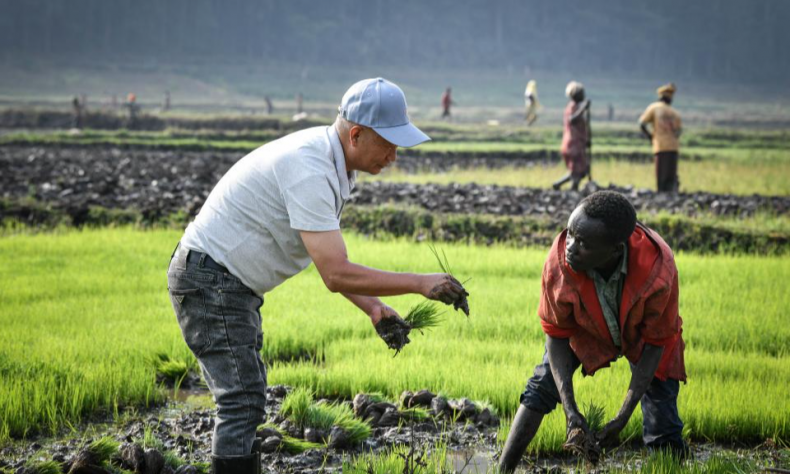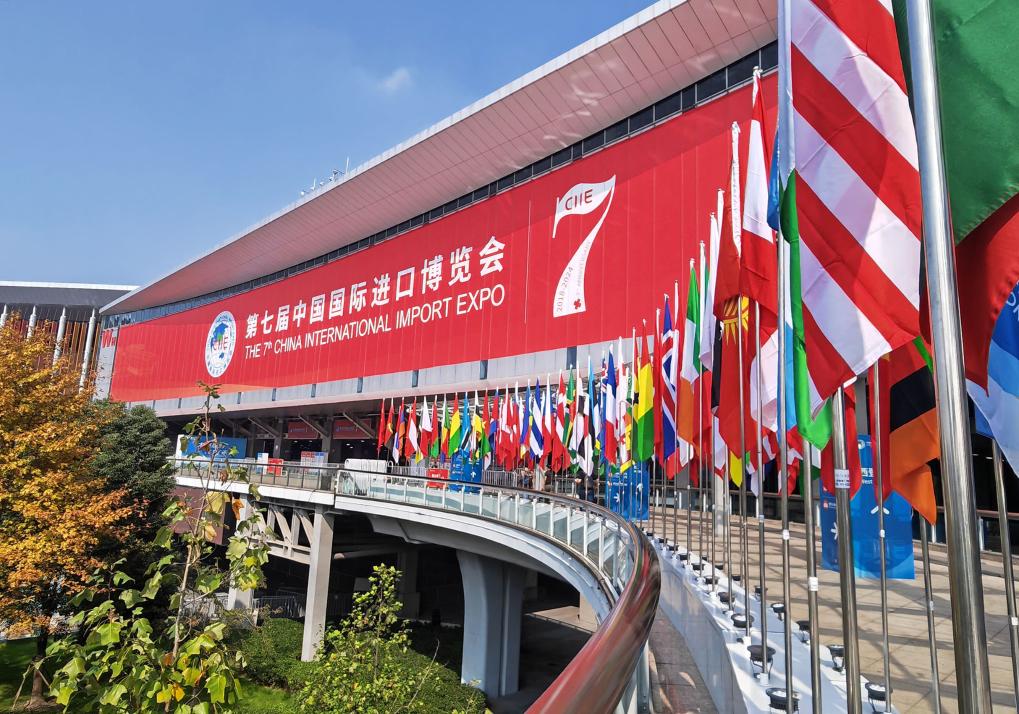Common Challenges Call for Joint Actions

As we come to the close of 2024, openness and solidarity is what we need to tackle the common challenges facing the whole world.
The past month saw a flurry of international events where China’s commitment to a fair global governance, an open economy for joint growth and lasting global peace, as well as commitment to international cooperation for tackling common challenges, was highlighted.
“We should keep in mind that mankind lives in a community with a shared future, see each other’s development as opportunities rather than challenges, and view each other as partners rather than rivals,” President Xi Jinping said at the 19th G20 Summit in Brazil on November 18, calling for “working together for a fair and equitable global governance system.” He also urged the member states to improve global governance and build a world economy characterized by cooperation, stability, openness, innovation, and eco-friendliness.
In the middle of the third decade of the 21st century, the world is still trapped in governance, trust, peace, and development deficits. The Global Economic Prospects issued by the World Bank in June projected 2.6 percent global growth in 2024, lower than in 2023 and 2022. The overall global outlook remains subdued by historical standards, set to underperform the 2010s average in 60 percent of economies, according to the report. Factors like geopolitical tensions, trade fragmentation, and climate disasters are making downward risks loom large. The conflict between Ukraine and Russia still rages on. Some Western countries with confrontational mindsets have been slapping tariffs prejudicially, triggering trade frictions and impeding trade flow, further thwarting global development.
The Rio G20 Summit, negotiating “building a just world and a sustainable planet,” put fighting hunger and poverty at the top of the agenda. A Global Alliance Against Hunger and Poverty has been launched to build a just world of common development.
“To build such a world, we need to channel more resources to such fields as trade, investment and development cooperation, and strengthen development institutions. There should be more bridges of cooperation, and less ‘small yard, high fences,’ so that more and more developing countries will be better off and achieve modernization,” Xi stressed.
The seventh China International Import Expo (CIIE), held in Shanghai in November, is a case in point. It showed China walking the talk to build an open economy and a bridge of cooperation. With US $80.01 billion worth of tentative deals reached for one-year purchases of goods and services, the seventh CIIE drew 3,500 exhibitors from 129 countries and regions. The expo sent the message that businesses worldwide can connect, forge partnerships, and contribute to a more prosperous and interconnected global economy, said Rebeca Grynspan Mayufis, secretary-general of the United Nations Conference on Trade and Development, Xinhua reported.

The World Openness Report 2024 says China remains one of the bright spots in a globally declining landscape of openness. China’s openness index rose from 0.6789 in 2008 to 0.7596 in 2023, one of the top economies in terms of growth rate. The CIIE has been an occasion over the past seven years to witness the unveiling of China’s new policies to expand its opening up, including lowering tariff and “scrapping all items in the manufacturing industry on the national negative list for foreign investment.”
In November, another international gathering also drew global attention. The 29th Conference of the Parties to the UN Framework Convention on Climate Change (COP29) in Baku, Azerbaijan, gathered leaders from various sectors across the globe to advance solutions to a common challenge of our time – climate change. For China, apart from displaying its determination, policies and actions for green transition and carbon dioxide emission reduction, it was also an occasion to advance its cooperation with other countries in addressing the global threat.
On November 15, China’s Ministry of Ecology and Environment signed a memorandum of understanding (MoU) with Nigeria for bilateral cooperation, including jointly building a low-carbon development demonstration zone in Nigeria and helping the African country accelerate its green transition. According to official data, as of October 2024, China had signed 53 South-South cooperation MoUs on tackling climate change with 42 developing countries, and nearly 100 climate change mitigation and adaptation projects have been implemented.
“China stands ready to continue to deepen international cooperation with all sides on green infrastructure, green energy, green mining and green transport, and will provide support to developing countries to the best of its ability,” Xi stressed at the G20 Summit.
Meanwhile, the world is still being ravaged by conflicts and peaceful settlement is what war-torn regions need most. “To deescalate the Ukraine crisis and seek a political settlement, we should follow the principles of no expansion of the battlefields, no escalation of hostilities, and no fanning flames,” Xi said. China and Brazil, together with other Global South countries, launched the group of “Friends for Peace” on the Ukraine crisis, aiming to bring together more advocates for peace.
As we come to the close of 2024, openness and solidarity is what we need to tackle the common challenges facing the whole world.
 Facebook
Facebook
 Twitter
Twitter
 Linkedin
Linkedin
 Google +
Google +










